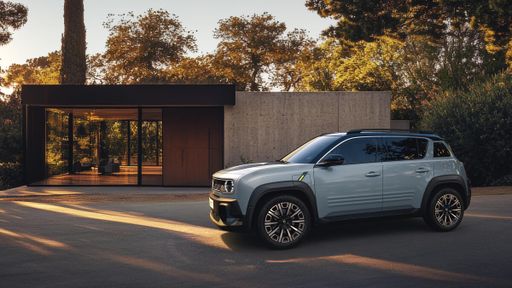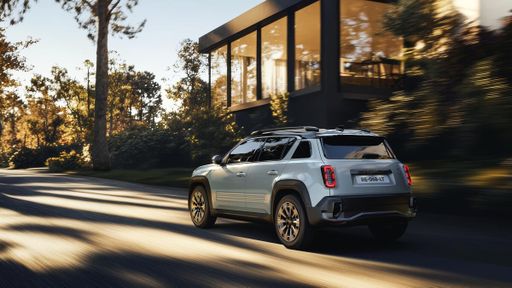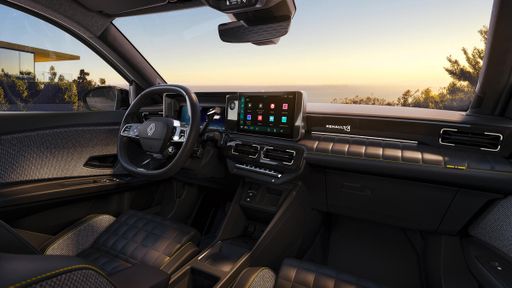Nissan Leaf vs Renault R4 - Differences and prices compared
Compare performance (217 HP vs 150 HP), boot space and price (30800 £ vs 25200 £ ) at a glance. Find out which car is the better choice for you – Nissan Leaf or Renault R4?
Costs and Efficiency:
When it comes to price and running costs, the biggest differences usually appear. This is often where you see which car fits your budget better in the long run.
Renault R4 has a evident advantage in terms of price – it starts at 25200 £ , while the Nissan Leaf costs 30800 £ . That’s a price difference of around 5571 £.
In terms of energy consumption, the advantage goes to the Renault R4: with 14.20 kWh per 100 km, it’s slightly more efficient than the Nissan Leaf with 16.70 kWh. That’s a difference of about 2.50 kWh.
As for electric range, the Renault R4 performs slight better – achieving up to 409 km, about 24 km more than the Nissan Leaf.
Engine and Performance:
Power, torque and acceleration are the classic benchmarks for car enthusiasts – and here, some clear differences start to show.
When it comes to engine power, the Nissan Leaf has a distinct edge – offering 217 HP compared to 150 HP. That’s roughly 67 HP more horsepower.
In acceleration from 0 to 100 km/h, the Nissan Leaf is slightly quicker – completing the sprint in 6.90 s, while the Renault R4 takes 8.20 s. That’s about 1.30 s faster.
In terms of top speed, the Nissan Leaf performs slight better – reaching 157 km/h, while the Renault R4 tops out at 150 km/h. The difference is around 7 km/h.
There’s also a difference in torque: Nissan Leaf pulls evident stronger with 340 Nm compared to 245 Nm. That’s about 95 Nm difference.
Space and Everyday Use:
Beyond pure performance, interior space and usability matter most in daily life. This is where you see which car is more practical and versatile.
Both vehicles offer seating for 5 people.
In curb weight, Renault R4 is slight lighter – 1485 kg compared to 1580 kg. The difference is around 95 kg.
In terms of boot space, the Renault R4 offers convincingly more room – 1045 L compared to 394 L. That’s a difference of about 651 L.
In maximum load capacity, the Renault R4 performs convincingly better – up to 1405 L, which is about 615 L more than the Nissan Leaf.
When it comes to payload, Renault R4 barely noticeable takes the win – 443 kg compared to 415 kg. That’s a difference of about 28 kg.
Who wins the race in the data check?
The Renault R4 is slightly ahead in the objective data comparison.
This result only shows which model scores more points on paper – not which of the two cars feels right for you.
Costs and Consumption
View detailed analysis
Engine and Performance
View detailed analysis
Dimensions and Body
View detailed analysis

Renault R4
Nissan Leaf
The Nissan Leaf is a practical, easygoing electric hatch that turns daily commutes into a quiet, effortless affair while offering more cabin space than it lets on. It’s a sensible, wallet-friendly step into electrification for buyers who value comfort and simplicity over sporty drama, though those chasing long-distance thrills might look elsewhere.
details



Renault R4
The Renault R4, affectionately known as the "R4," is a quintessential symbol of French automotive simplicity and practicality. This classic compact car, originally introduced in the early 1960s, won over numerous enthusiasts with its versatile design and dependable performance. Its no-frills charm and robust build made it a beloved choice for rural drivers and city dwellers alike, cementing its status as an iconic piece of automotive history.
details


Costs and Consumption |
|
|---|---|
|
Price
30800 - 37200 £
|
Price
25200 - 31200 £
|
|
Consumption L/100km
-
|
Consumption L/100km
-
|
|
Consumption kWh/100km
16.7 - 17.8 kWh
|
Consumption kWh/100km
14.2 - 15.1 kWh
|
|
Electric Range
270 - 385 km
|
Electric Range
308 - 409 km
|
|
Battery Capacity
39 - 59 kWh
|
Battery Capacity
40 - 52 kWh
|
|
co2
0 g/km
|
co2
0 g/km
|
|
Fuel tank capacity
-
|
Fuel tank capacity
-
|
Dimensions and Body |
|
|---|---|
|
Body Type
Hatchback
|
Body Type
SUV
|
|
Seats
5
|
Seats
2 - 5
|
|
Doors
5
|
Doors
5
|
|
Curb weight
1580 - 1756 kg
|
Curb weight
1485 - 1537 kg
|
|
Trunk capacity
385 - 394 L
|
Trunk capacity
420 - 1045 L
|
|
Length
4490 mm
|
Length
4144 mm
|
|
Width
1788 mm
|
Width
1808 mm
|
|
Height
1540 - 1545 mm
|
Height
1552 mm
|
|
Max trunk capacity
790 L
|
Max trunk capacity
1405 L
|
|
Payload
384 - 415 kg
|
Payload
385 - 443 kg
|
Engine and Performance |
|
|---|---|
|
Engine Type
Electric
|
Engine Type
Electric
|
|
Transmission
Automatic
|
Transmission
Automatic
|
|
Transmission Detail
Reduction Gearbox
|
Transmission Detail
Reduction Gearbox
|
|
Drive Type
Front-Wheel Drive
|
Drive Type
Front-Wheel Drive
|
|
Power HP
150 - 217 HP
|
Power HP
122 - 150 HP
|
|
Acceleration 0-100km/h
6.9 - 7.9 s
|
Acceleration 0-100km/h
8.2 - 9.2 s
|
|
Max Speed
144 - 157 km/h
|
Max Speed
150 km/h
|
|
Torque
320 - 340 Nm
|
Torque
225 - 245 Nm
|
|
Number of Cylinders
-
|
Number of Cylinders
-
|
|
Power kW
110 - 160 kW
|
Power kW
90 - 110 kW
|
|
Engine capacity
-
|
Engine capacity
-
|
General |
|
|---|---|
|
Model Year
2019
|
Model Year
2025
|
|
CO2 Efficiency Class
A
|
CO2 Efficiency Class
A
|
|
Brand
Nissan
|
Brand
Renault
|
What drivetrain options does the Nissan Leaf have?
Available configurations include Front-Wheel Drive.
